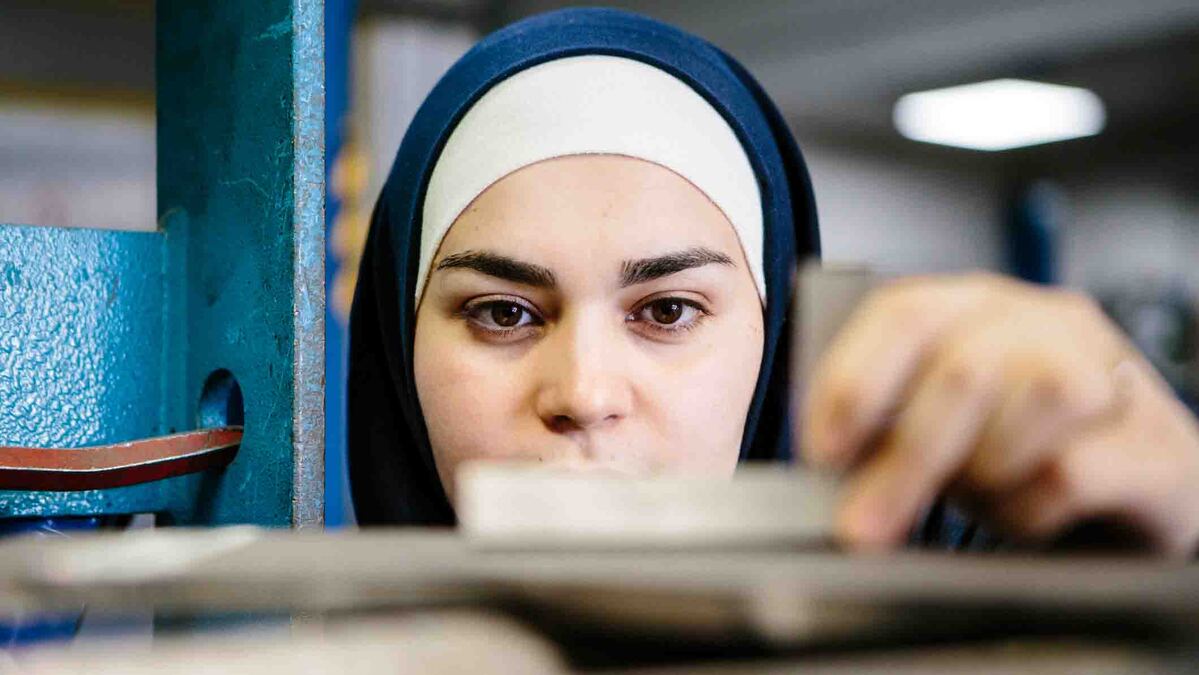Published:

Funding has been secured to investigate the reasons why gender equality in the mechanical engineering profession seems to be lagging behind other areas of STEM.
Researchers at Heriot-Watt University in Edinburgh and Nile University in Egypt have received £25,000 through the British Council's Gender Equality Partnership scheme, to identify the factors that influence career choice and progression in this vital sector of the economy.
According to the Higher Education Statistics Agency (HESA) the participation rate for women in mechanical engineering degree courses rose sluggishly from 8% in 2012 to just 10% in 2016. This is against a background where the number of women accepted into full-time STEM undergraduate courses rose by 49% between 2010 and 2020.
We want to unpack equality of opportunity and participation rate and, if we can, break any negative feedback loops that we can identify by publishing our findings and raising awareness through our network which we hope will become self-propagating at the end of the study period.
This 12-month project, titled, Unblocking the Equality Pipeline in Mechanical Engineering, will form two parallel networks in the UK and Egypt, will include 100 women at various stages of the career “pipeline” from first year undergraduates to the most senior levels of the profession. The networks will be complemented by 100 men at similar career stages. Once formed, the networks will share their experiences of the challenges and opportunities they have faced in their careers, underpinned by periodic surveys aimed at identifying the “blockages” in the pipeline. The UK part of the study is being led at Heriot-Watt University and the findings collated alongside the work carried out by academics at Nile University.
The UK network will be formed from undergraduates, postgraduates and graduates of Heriot-Watt University. As well as including the current undergraduate and postgraduate students and staff in mechanical engineering, the research team will reach out to alumni stretching back to those who entered the University 40 years ago. A sub-project includes staff and students at Heriot-Watt's campuses in Dubai and Malaysia, offering the opportunity for cultural comparisons to complement those between Heriot-Watt and Nile Universities.
Project lead, Professor Bob Reuben from Heriot-Watt's School of Engineering and Physical Sciences, explains: “I have been committed to equality for all of the 40 years that I have been teaching mechanical engineering in HE. This project gives us a chance to identify, in a quasi-longitudinal fashion, if equality of opportunity exists for women. By simultaneously engaging with both ends of the pipeline, complemented by published historical national benchmark data we hope to be able to form some conclusion about if, and how, things have changed in mechanical engineering. Currently, we don't see anywhere near as much growth in participation rate amongst women in mechanical engineering even when compared with other areas of engineering. We want to unpack equality of opportunity and participation rate and, if we can, break any negative feedback loops that we can identify by publishing our findings and raising awareness through our network which we hope will become self-propagating at the end of the study period.
“Do female university applicants not see modern mechanical engineering as a potentially fulfilling career? Is there a societal bias about the subject? Has the environment in peer groups at school, university and in the workplace changed over the past decade? We're not sure but we want to know so that we can try to accelerate the pace change as it affects our subject.
“Mechanical engineering has shed its traditional, almost exclusive, association with cars, pumps and engines. Whilst these remain important, the subject embraces everything that moves from micromachines in medicine to huge tidal turbines for renewable energy generation. As such, it offers so much to men and women, and, by encouraging more women and girls that this is an exciting and fulfilling career choice, we hope to contribute to a more equitable and diverse workforce to the benefit of everyone connected to the sector.”
Also working on the Heriot-Watt part of the project is Dr Yuhang Chen from the School of Engineering and Physical Sciences who is the Mechanical Engineering Admissions Tutor, and whose areas of research expertise include computational mechanics and biomedical engineering. He said: “This project is a great opportunity to publicise how exciting mechanical engineering is to those contemplating their university choice. In my own research area, participation rate amongst women appears much higher than in the subject in general and we hope that some of our research associates and PhD students will serve as role models in the network.”
The findings are expected to be published at the end of 2023 and are set to shed new light on equality, diversity and inclusion issues in mechanical engineering.
Dr Irene Samy Fahim, Head of the Smart Engineering Systems Research Center at Nile University, finished: “We are looking forward very much to this project. There are some clear cultural differences between Scotland and Egypt, but our discipline faces the same challenges. We also look forward to extending our engagement with Heriot-Watt University into the research and staff exchange arena.”